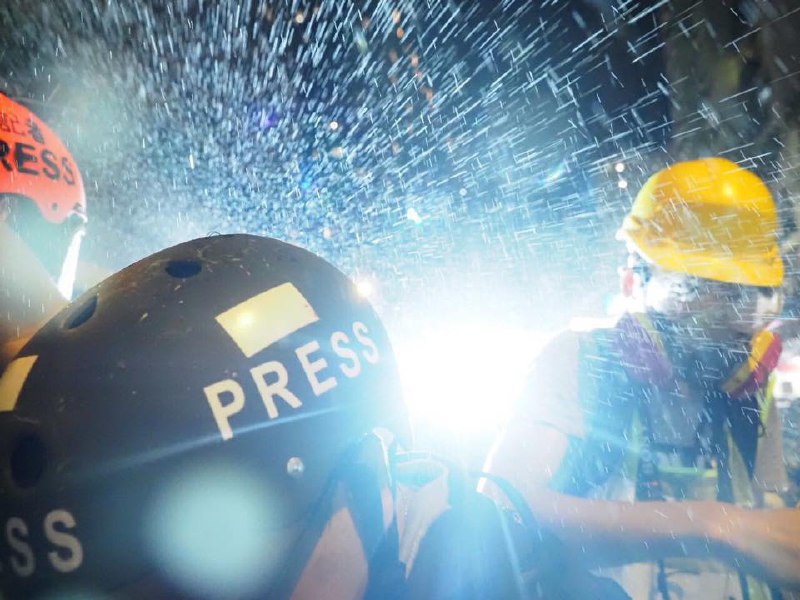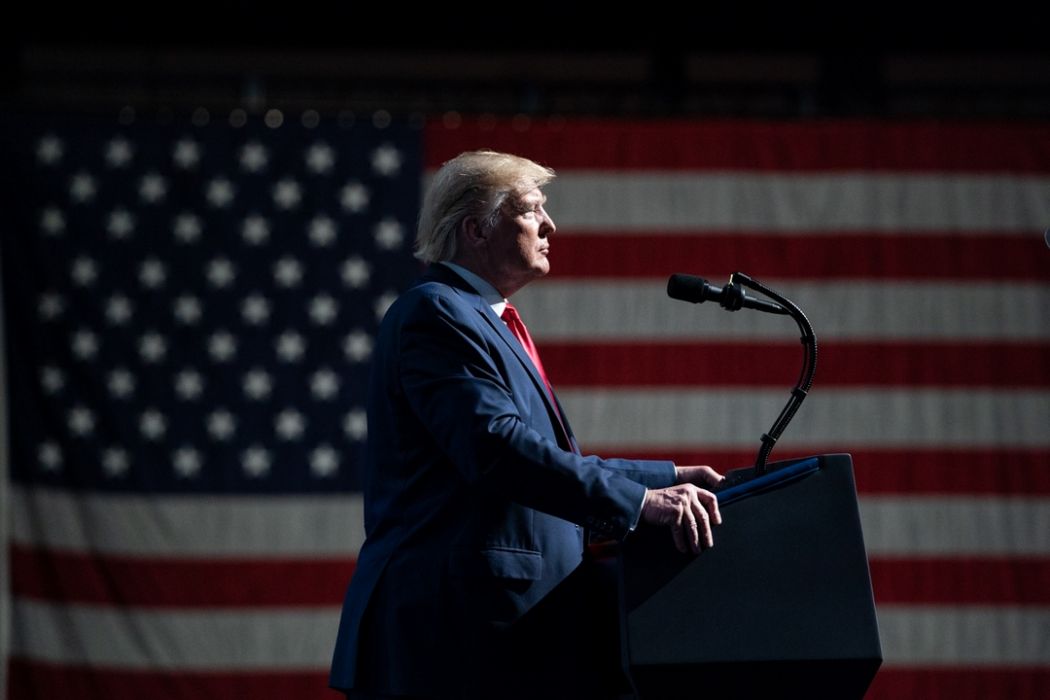Covid-19 is wreaking havoc around the world. The daily number of infected and dead keeps climbing. As I look out my window, I am not sure that things will ever fully return to the way they were before the pandemic. But press freedom and the truth should not be among the casualties.
Late last week, Human Rights Watch warned in a report that while Beijing is attempting to censor and suppress news and facts about Covid-19, there is a real threat of the disease making a comeback in China.

The censorship itself goes back to the start of the outbreak, when Beijing suppressed news reports from doctors in Wuhan about the new, and spreading, disease. Experts in the West have also been questioning the numbers of sick and dead from Covid-19 in China, believing that Beijing is drastically downplaying the total numbers.
On top of this, there have also been numerous stories of how Beijing is trying to re-write the history of the disease.

This all works together to change the narrative of the disease to make the government in Beijing look more favourable. In a report by Reporters Without Borders, China ranked 177th out of 180 countries in the world in press freedom, while Hong Kong dropped seven places to 80th “because of its treatment of journalists during pro-democracy demonstrations.”
Unfortunately, none of this should be a real surprise to those familiar with press freedom in China, and I have written on this topic before.
But attempts at censorship, suppression and re-writing history are not just coming from Beijing. In a report from the Committee to Protect Journalists titled “The Trump Administration and the Media,” President Trump’s attacks on the news media are seen as having “dangerously undermined truth.”

President Trump’s history of labeling stories he doesn’t like as “fake news,” belittling reporters who question his past statements in comparison with what he says today, and his penchant “to state untruths with impunity,” as Columbia Journalism Review digital media reporter Matthew Ingram wrote, are very dangerous to journalism and journalists not just in the United States but around the globe.
In the Committee to Protect Journalists’ report, former White House communications director Michael Dubke is quoted as saying “What concerns me is that authoritarian leaders who had already placed restrictions on their press are using President Trump’s words to justify what they are doing.”
Also quoted in the report is a speech given at Brown University in September 2019, by the publisher of the New York Times, Arthur Sulzberger: “In attacking American media, President Trump has done more than undermine his own citizens’ faith in the news organisations attempting to hold him accountable. He has effectively given foreign leaders permission to do the same with their countries’ journalists and given them the vocabulary with which to do it.”
The rise of Covid-19 on top of these trends from Washington and Beijing is only making the situation for journalists that much harder, and more dangerous. Around the world, government leaders are using the outbreak of Covid-19 along with their now emboldened stance against journalists, both to instil mistrust in news organisations and to crack down on press freedom.

The Committee to Protect Journalists has also been cataloguing these issues as well.
- In Ethiopia, journalist Yayesew Shimelis was detained on March 27th after he published a report on Covid-19, and he has been now charged with terrorism.
- In late March, Myanmar ordered local internet service providers to black 221 websites it claimed were “fake news” under a law that allows the government to have telecommunication companies block websites in “emergency situations”, citing Covid-19 as the emergency.
- Also in late March, authorities in the Philippines filed criminal complaints against journalists Mario Batuigas and Amor Virata for spreading “false information” about the Covid-19 spread in that country.
- In India, the government attempted to impose prior censorship for news articles about Covid-19, until blocked by India’s Supreme Court. However, the court directed that news organisations must refer to and publish the official version of developments.
- On April 2, Iraqi authorities suspended the licence of the Reuters News Agency and fined them for a news report that stated that Covid-19 cases in the country were higher than the government’s numbers.
- In a speech on April 13, Chechen leader Ramzan Kadyrov threatened journalist Elena Milashina for writing “nonsense” in a story stating that Chechens had stopped reporting symptoms of Covid-19 for fear of being labelled “terrorists.”
- Finally, in Puerto Rico, Governor Wanda Vazquez signed an amendment to the island’s Public Security Law making it illegal for the media “to transmit or allow the transmission” of “false information” about Covid-19.
And that is not all of the cases the Committee to Protect Journalists has tracked.
Individually, each of these instances is a flagrant attempt to silence journalists in the countries where they occurred. Taken together they show the full scale of governments’ use of the outbreak of Covid-19 as cover while they crack down on press freedom, knowing that while the world is preoccupied with the pandemic these incidents are likely to draw less scrutiny.
Howard Chapnick, the former president of the Black Star Photo Agency, titled his 1994 book about photojournalism “Truth Needs No Ally.” But things are very different now than they were in 1994.
Clearly in this day and age truth does need an ally, and it is the community of journalists around the world who pay the price for being that ally. But how much higher that price will become for both the journalists, and those harmed by not knowing the truth, remains to be seen.
